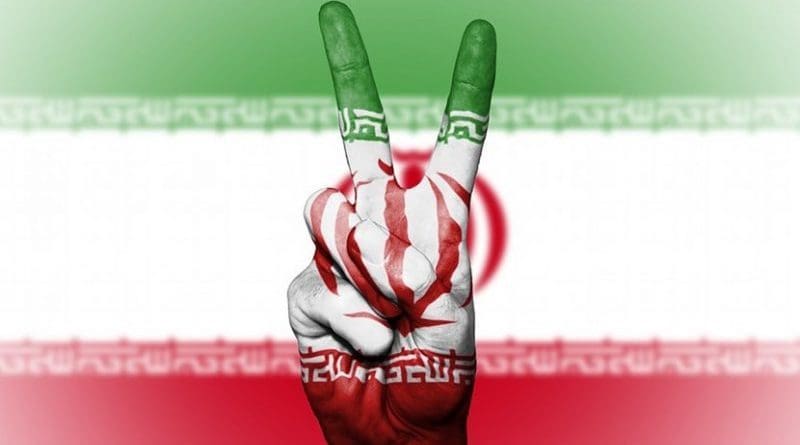230 Iranian Dissidents ‘Strongly’ Condemn Nuclear Assassination
By GVF
More than 230 Iranian activists have “strongly” condemned the recent assassination of a chemist involved in the country’s nuclear programme, warning that Iranians would not tolerate any action that endangered the lives of Iranian citizens and violated Iran’s national security.
Mostafa Ahmadi Roshan, who was killed Wednesday, was the third Iranian nuclear scientist to be killed in two years. A fourth survived a similar terrorist attack. Although no one has taken responsibility for the terrorist attacks, many are pointing the figure of blame at Israel’s notorious intelligence agency Mossad.
In a statement released on Sunday, the political activists said, “As anti-war activists, we strongly condemn the assassination of Mostafa Ahmadi Roshani, a director at the Natanz nuclear facility, which took place on 11 January in Tehran, just as we condemn any terrorist attack. These tactics are in contrast to the official policy of negotiations and talks, which can produce valuable results and reduce the risk of war. Terror is deplorable, and regardless of the goal it seeks, it neutralises acts of peace and creates justification and pretence for reciprocal acts of violence and terrorism.”
The list of signatories consists of a whole slew of activists, journalists and intellectuals who have at some point felt the wrath of the Iranian regime’s oppressive practices.
“Iran’s intelligence forces, which have directed all their efforts at suppressing domestic adversaries and stifling the voice of protesters and the media, have proven incapable of dealing with these [security] threats,” the activists said. “Regime officials, especially the Intelligence Minister, must be held accountable for the slackness shown in protecting the lives of Iranian experts and researchers.”
The activists, who represent a wide range of political leanings within the Iranian opposition, stressed that Iran’s economic growth and security would be ensured through a “governance based on Iranian national interests; a conciliatory [foreign policy] towards neighbouring countries and the international community; and most importantly, reconciliation with the people and handing power over to them.” The list of signatories included the likes of blogger Omid Memarian, Newsweek reporter Maziar Bahari, activist Hasan Shariatmadari, satirist Ebrahim Navabi, Mahdi Jalali and cleric Ahmad Montazeri, son of the late Shiite scholar Grand Ayatollah Montazeri.
“The people’s real interests are guaranteed only when the country’s politics and governance turn from isolationism, suppression of internal [dissent] and a foreign [policy] that is confrontational, while [at the same time] moving towards reducing the number of enemies; adding to the number of friends; a meaningful and peaceful participation in the region; and opening up the internal political sphere and allowing Iran’s economy to breathe and to have ties with the rest of the world.”
The statement condemned the assassination of Mostafa Ahmadi Roshan and urged pro-democracy activists to promote Iran’s right to acquire nuclear energy for peaceful purposes while “distancing themselves from the nuclear crises created by the regime and declaring their objection to violence and any acts of terror.”
“By suspending nuclear enrichment, the Islamic Republic must take the first step in preventing sanctions and evading the risk of covert and open wars.”
The statement also issued a strong warning to foreign powers that “resort to assassinations when their interests are at stake, despite their seeming opposition to terrorism.” “We warn that the Iranian people are sensitive about any action that endangers the lives of Iranian citizens, and do not tolerate any affront to Iran’s national security.”
In November, more than 120 Iranian authors, activists and journalists voiced their concern about the ramifications of a possible military strike on Iran, describing the “disturbing wave” of military threats against Iran as “reckless and unwise.”
“The significant and fateful developments of the Arab Spring, and in particular the eye-opening fate of the Libyan dictator and his … regime—which was brought about following the direct military intervention of NATO forces—is tempting others to seek a similar scenario in order to free Iran from the yoke of this oppressive theocracy,” their statement said. “We believe, and state out of responsibility, that humanitarian aid and democracy cannot come from the barrel of a gun. Guided missiles cannot bring humanitarian aid and democracy; humanitarian aid and democracy do not fall from bombers onto civilians; remotely guided unmanned drones cannot fire humanitarian aid and democracy [at the people].”
A day after Ahmadi Roshan’s killing, the International Campaign for Human Rights in Iran strongly condemned the assassination, expressing “serious concern at an increasing climate of violence relating to Iran’s nuclear crisis, compounded by recent statements by Israeli officials and a former Obama advisor regarding a pre-emptive strike on Iran.”
“This increase in violent confrontations, covert or acknowledged, coupled with rising belligerence from all parties, will lead to a human rights catastrophe in Iran,” said Hadi Ghaemi, spokesperson for the Campaign.
According to the campaign, in the past several days, certain elements in the Iranian intelligence and security forces have been gearing up for an opportunity to severely persecute activists, dissidents, and prisoners of conscience. “[Human rights activists in the country] fear a military conflagration could provide just such an opportunity to target them for widespread extrajudicial killings.
“Roshan’s death appears to have been an extrajudicial killing in violation of international law,” Campaign spokesperson Ghaemi said. “We call on Iranian authorities to launch a complete and transparent investigation into the matter and urge full cooperation by foreign governments and international law enforcement.
“These public messages legitimizing acts of terror are barbaric, coupled with remarks by Israeli officials that suggest targeted killings are legitimate, which they are not,” Ghaemi added.

